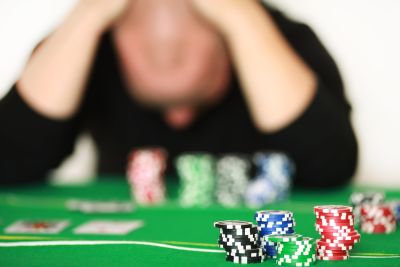

Establishing an image at the table is a vital part of any gambling strategy if you expect to win. This is true regardless of the game you are playing.
I have been at dice tables when a shooter, male or female, takes a position at the table and just dives into the game, making point after point, driving the other players into a near frenzy, and adding to the gray hairs of the pit bosses.
People get caught up in the excitement. They crowd the table trying to get their bets in, even if there is no space. When the shooter makes his point, a shout erupts like a bad beat jackpot has just been hit, or Notre Dame just scored a touchdown with three seconds left on the clock.
A person's table image is also important in poker. If your image is that of a bold player who isn't afraid to raise, re-raise or even cap the betting, the other players will react a certain way toward you. Passive players won't want to get involved in your pots. Aggressive players smell blood and want to come up schemes that will trap you.
When you create a bold image in poker, you control the game. You also make the other players improve their own game to cope with you.
But what happens if you suddenly switch from bold and aggressive timid and non-raising -- and do it without warning the other players?
Doyle (Texas Dolly) Brunson is a big exponent of changing gears. He does it so smoothly and unexpectedly that the other players have no idea it has been done, until they get outplayed in a big pot by a lightning bolt out of the blue that they didn't see coming.
A few months ago, something happened to me that happens to all poker players eventually -- the cards turned against me with a vengeance
No matter what I did, which tables I played at, where I sat, the cards didn't come. When I would get a good hand and put in the proper raise, the flop always seemed to help somebody else. I felt like a stranger in a game I suddenly did not understand. I lost night after night and could not seem to stop the slide.
Then I remembered what Brunson had told me in the first interview he ever gave me in Phoenix. This was several years before he wrote 'Super-System' and it was about a technique he called changing gears.

He gave me a good analogy of what changing gears are all about. He told me a story about a player that would come to their regular games in Texas. The guy was a wealthy rancher who had productive oil wells on his land. Even though he had plenty of money, he played a tight game and was very conservative with his money. The other players read him that way and played him accordingly.
One night he showed up at the game and he played dramatically different. He even looked different. He wore a happy smile on his face and threw his money and raises around like a drunken sailor who had made port after six months at sea.
The change took the other players by surprise. They could not cope with it and they lost a lot of the money they had taken from the wealthy rancher in the past before they realized what had happened.
The rancher had fallen in love. He had proposed marriage to a beautiful much younger woman, she had accepted, and he was celebrating his good fortune.
It took time but the other players managed to adjust to his new style and it didn't take long for them to get their money back.
Changing gears is precisely what the rancher did --- without the prospective new bride.
When I remembered Doyle's valuable lesson, I decided to play no-raise Texas Hold-em. No matter what two cards came, I would not raise until I had a 'nut' hand.
It worked.
Thirty minutes into the game, the regulars began talking to themselves. After an hour, they started talking to each other. And after two hours, they just stopped talking, period.
All that evening, I kept the other players off-balance by changing gears. When I cashed in, I was a couple of thousand ahead
'Nice comeback,' one of the other players said 'What happened? Get married?'
I didn't tell them the truth, of course. I came up with some sort of story that they half-believed. Poker players rarely tell the truth and I wanted to stay with the tradition.
Author: Geno Lawrenzi Jr.
(Geno Lawrenzi Jr. is an international journalist, magazine author and ghostwriter. If you have a unique gambling story to share with him, you may qualify for a cash award. Send your story with all the details to glawrenzi@gmail.com ).
Your feedback
Please enter your comment.
Your comment is added.




